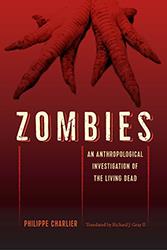Drawing on material evidence from daily life in a coal-mining town, this book offers an up-close view of the political economy of the United States over the course of the twentieth century. This community’s story illustrates the great ironies of this era, showing how modernist progress and plenty were inseparable from the destructive cycles of capitalism.
Browse by Subject: Anthropology
Please note that while you may order forthcoming books at any time, they will not be available for shipment until shortly before publication date
This is the first volume to bring together archaeology, anthropology, and art history in the analysis of pre-Columbian pottery. While previous research on ceramic artifacts has been divided by these three disciplines, this volume shows how integrating these approaches provides new understandings of many different aspects of Ancient American societies.
Exploring a variety of topics including European colonialism, migration, citizenship, sex tourism, music, literature, and art, contributors demonstrate that alternate views of Haitian and Dominican history and identity have existed long before the present day. From a moving section on passport petitions that reveals the familial, friendship, and communal networks across Hispaniola in the nineteenth century to a discussion of the shared music traditions that unite the island today, this volume speaks of an island and people bound together in a myriad of ways.
A revealing work of public history that shows how communities remember their pasts in different ways to fit specific narratives, Race, Place, and Memory charts the ebb and flow of racial tension in Wilmington, North Carolina, from the 1730s to the present day.
Exploring how our ancestors lived and how they died, the forty cases in this book tackle some of history’s most enduring questions and illustrate the power of science to reveal the secrets of the past.
Zombies follows Charlier’s journey to understand the fascinating and frightening world of Haiti’s living dead, inviting readers to believe the unbelievable.
This volume reveals that individuals in Amazonian cultures often disregard or reinterpret the marriage rules of their societies--rules that anthropologists previously thought reflected practice. It is the first book to consider not just what the rules are but how people in these societies negotiate, manipulate, and break them in choosing whom to marry.
Drawing on his personal experiences as a graduate student, a Roman Catholic priest in the region and his extensive archival research, Early constructs detailed case histories of the Maya uprisings against the governments of Guatemala and Mexico, exploring Liberation Catholicism’s integral role in these rebellions as well as in the evolutions of Maya and Catholic theologies.
Misha Klein’s fascinating ethnography reveals the complex intertwining of Jewish and Brazilian life and identity.
Negotiating Respect is an ethnographically rich investigation of Pentecostal Christianity—the Caribbean’s fastest growing religious movement—in the Dominican Republic.











